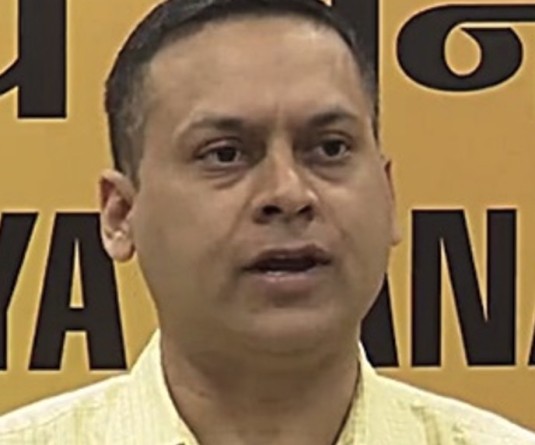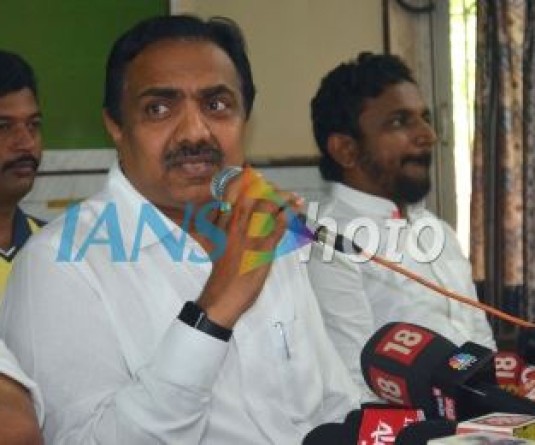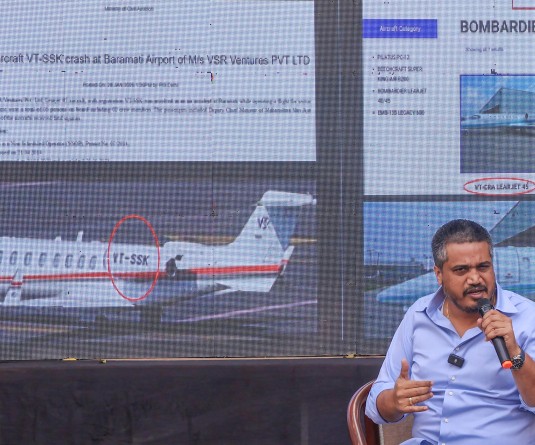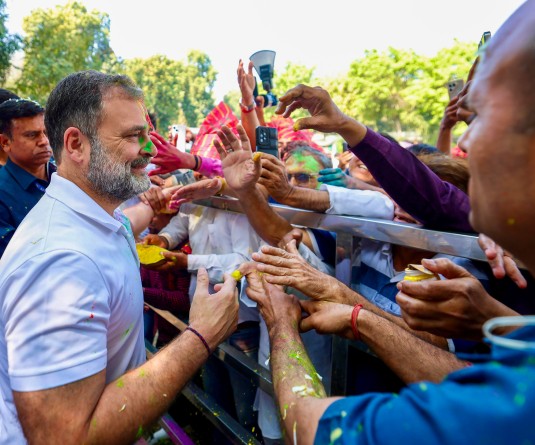A student of the Jamia Millia Islamia university reacts during a demonstration after police entered the university campus on the previous day, following a protest against a new citizenship law, in New Delhi, India, December 16, 2019. REUTERS/Adnan Abidi(R

A student of the Jamia Millia Islamia university reacts during a demonstration after police entered the university campus on the previous day, following a protest against a new citizenship law, in New Delhi, India, December 16, 2019. REUTERS/Adnan Abidi(REUTERS)
New Delhi, December 16 (PTI): Anger over the police crackdown in Delhi’s Jamia Millia Islamia and at the controversial Citizenship Amendment Act cascaded across many campuses in the country on Monday with politicians and civil society supporting the students to decry what they say is an unconstitutional law.
A day after violence erupted in the national capital’s New Friends Colony, the lines between anger at the police action and the protests over the CAA blurred in support of the agitation—from Kerala to West Bengal and Telangana to Uttar Pradesh, there was widespread condemnation against police action.
While thousands of students took to the streets demanding a probe into the use on Sunday of teargas inside the Jamia’s library as well as police entering the campus without permission from university authorities, politicians also made themselves heard.

West Bengal Chief Minister Mamata Banerjee took out a massive rally in Kolkata, and opposition leaders addressed a joint press conference in Delhi to say the entire country was opposed to the “unconstitutional law” and to condemn the violence against the Jamia students. In a rare show of camaraderie, rivals UDF and LDF protested jointly in Kerala’s Thiruvananthapuram.
“It is the central government which is solely responsible for the violence in the country for bringing a law which is being opposed all over the country and by all opposition political parties. Had the government not brought this law, there would not have been any violence”, Congress leader Ghulam Nabi Azad said.
As demonstrations over the act that will give citizenship to non-Muslim migrants from Pakistan, Afghanistan and Bangladesh snowballed, Prime Minister Narendra Modi said violent protests on the legislation are “unfortunate and deeply distressing”.
The amended citizenship law, he said on Twitter, illustrates India’s centuries old culture of acceptance, harmony, compassion and brotherhood.
“We cannot allow groups with vested interest to divide us and create disturbance,” he added.
The Supreme Court took serious note of rioting and destruction of public property during protests against the act and said it must stop immediately.
The apex court, which agreed to hear on Tuesday pleas alleging police atrocities on students holding protests against the act at the Aligarh Muslim University and the Jamia Millia Islamia, said it will not hear this issue in such an atmosphere of violence.
“The only thing we want is that the violence must stop,” said a Bench headed by Chief Justice SA Bobde.
Several Delhi University students boycotted exams and held a protest outside the Arts Faculty in North Campus to express their solidarity with the movement.
At ground zero of the student movement, a group of Jamia students stood shirtless in the bone-chilling cold of a Delhi morning to protest the action against their colleagues on Sunday. Hundreds more gathered on the streets in an orderly manner with some students forming a human chain to manage traffic.
Several students were seen leaving for home but the anger simmered.
“We were inside the university when the police barged in. Around 20 policemen came from gate no 7 and 50 others came from the rear gate. We told them we were not involved in the violence. They didn’t listen. They didn’t even spare women,” Khanzala, who suffered injuries to his legs and abdomen, said.
A woman broke down as Khanzala showed his injuries to the media.
Fifty detained Jamia students were released early Monday but tension continued on the campus.
Jamia Vice-Chancellor Najma Akhtar also supported the students, saying police entered the campus without permission.
“We will not tolerate police presence on campus. They scared our students with police brutality” she told a press conference here, adding that the university will file an FIR on damage to property and police action on students. She also demanded a high-level inquiry from the government.
In Lucknow’s Nadwa College, students gathered in the hundreds shouting slogans like “Awaz do, hum ek hain” (call us we are all united) as police tried to control the situation. For a brief while, they hurled stones at the police who threw the missiles back over a campus steel gate.
“Some students of the Nadwatul Ulama here tried to protest and hurled stones from inside. They were prevented and no one is allowed to come outside the campus,” said Uttar Pradesh Director General of Police O P Singh.
In Hyderabad’s Maulana Azad Urdu University, students held a protest march post midnight in solidarity with the Jamia students and demanded that their exams be postponed.
There were angry demonstrations at the Banaras Hindu University (BHU) in Varanasi and at the Jadavpur University in Kolkata with demands that the government take action against police “hooliganism”.
“Crackdown is a very small word to be used for what happened in Jamia yesterday. This is clear hooliganism. Videos of policemen smashing bikes and beating students are all over social media. The government must fix accountability for this,” said a PHD student from BHU.
Students from three Indian Institutes of Technology (IITs) in Kanpur, Madras and Bombay who usually stay away from agitations joined in too as did their counterparts from the Indian Institute of Science (IISc) in Bengaluru.
Students from the Tata Insitute of Social Sciences (TISS) in Mumbai also protested on the streets shouting slogans such as “Shame on Delhi Police”.
Students at Central University of Kerala, Kasargod, and Pondicherry University boycotted classes.
The first to join the movement against the violence in Jamia were students from AMU where there were clashes with the police late night on Sunday in which at least 60 students were injured.
After the protest, the administration announced closure of the university till January 5 and students have been asked to evacuate the hostels.
As videos from Sunday’s violence inside Jamia circulated wildly on social media, many spoke out, including from Hollywood and Bollywood.
Hollywood star John Cusack was one of those who took to Twitter to air his views.
“Reports from Delhi are it was a war zone last night— Fascism is not a joke - we use the word with the understanding it’s deadly.”
Filmmaker Anurag Kashyap, who had quit the micro-blogging site in August, returned on the microblogging site, saying he cannot stay “silent any longer”.
“This government is clearly fascist... and it makes me angry to see voices that can actually make a difference stay quiet,” he tweeted.
Jawaharlal Nehru University (JNU) students joined their compatriots in Jamia outside the police headquarters at Delhi’s ITO on Sunday night to protest the alleged police assault on students at the Jamia campus earlier in the day.
Opposition politicians and activists say the Citizenship Amendment Act, which was passed last week by Parliament, is an attempt to divide the country along religious lines as it grants citizenship to Hindu minorities from the three neighbouring countries. They say such a preference is unconstitutional.
All India Congress Committee general secretary Priyanka Gandhi Vadra sat on a dharna at India Gate to protest Sunday's police action. Several CWC members and AICC general secretaries joined her. PTI/TNS






